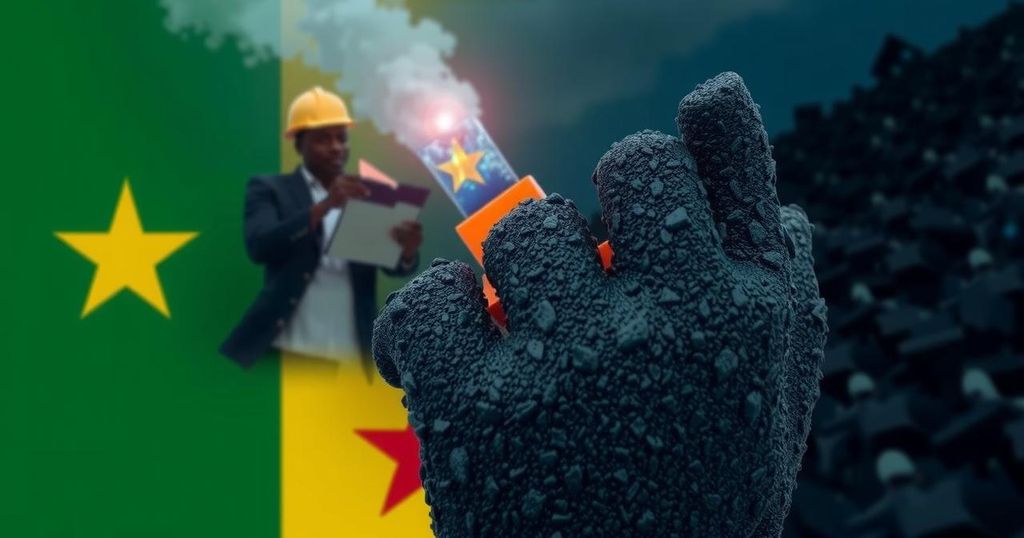Ghana’s Presidential Election Highlighted by the Illegal Mining Crisis

As Ghana approaches its presidential elections, the illegal mining boom known as galamsey is at the forefront of public concern. Driven by high unemployment and poverty, this activity threatens the environment and public health. The candidates, Vice President Mahamudu Bawumia and former President John Mahama, face pressure to resolve this crisis as many young voters seek sustainable solutions. Without a clear strategy to combat illegal mining, skepticism towards political promises is growing among the electorate.
In the lead-up to Ghana’s presidential elections, the issue of illegal mining, known locally as “galamsey,” has become increasingly prominent. As poverty and unemployment compel individuals like Frank to engage in these dangerous activities, their efforts to extract gold from the earth undermine essential natural resources. This mining boom threatens the environment, devastates agricultural lands, and poses a significant public health risk due to water pollution from chemicals used in the mining process.
Many young Ghanaians see the effects of galamsey as indicative of government failure to provide sustainable employment and effective environmental stewardship. Political candidates have been criticized for lacking a clear, enforceable strategy to address these pressing issues.
Moreover, the environmental degradation has been alarming, with over 19,000 hectares of cocoa land lost to mining activities. As the election approaches, citizens are calling for responsible solutions rather than temporary fixes that compromise long-term sustainability. The outcome may reflect the public’s demand for a government that engages with communities impacted by illegal mining while simultaneously preserving Ghana’s rich natural heritage.
Ghana, renowned as the world’s sixth-largest gold exporter and a significant cocoa producer, is facing severe challenges due to illegal mining activities. These practices, driven by economic desperation, have led to significant environmental degradation, including deforestation and pollution of water sources. As the nation prepares for presidential elections, the topic of galamsey has gained urgency, spotlighting the intersecting issues of economic opportunity, environmental preservation, and regulatory accountability. Past authorities’ promises to eliminate illegal mining have fallen short, reflecting a lack of adequate action and engagement with local communities.
The ongoing crisis surrounding illegal mining in Ghana highlights a complex interplay of economic necessity and environmental irresponsibility. As citizens prepare to vote, there is a clear demand for political leaders to address the structural issues driving people to engage in such activities while proposing viable solutions for sustainable development. The election may serve as a pivotal moment for reform, urging a strategy that involves all stakeholders to ensure both economic survival and environmental protection.
Original Source: www.cbs19news.com







